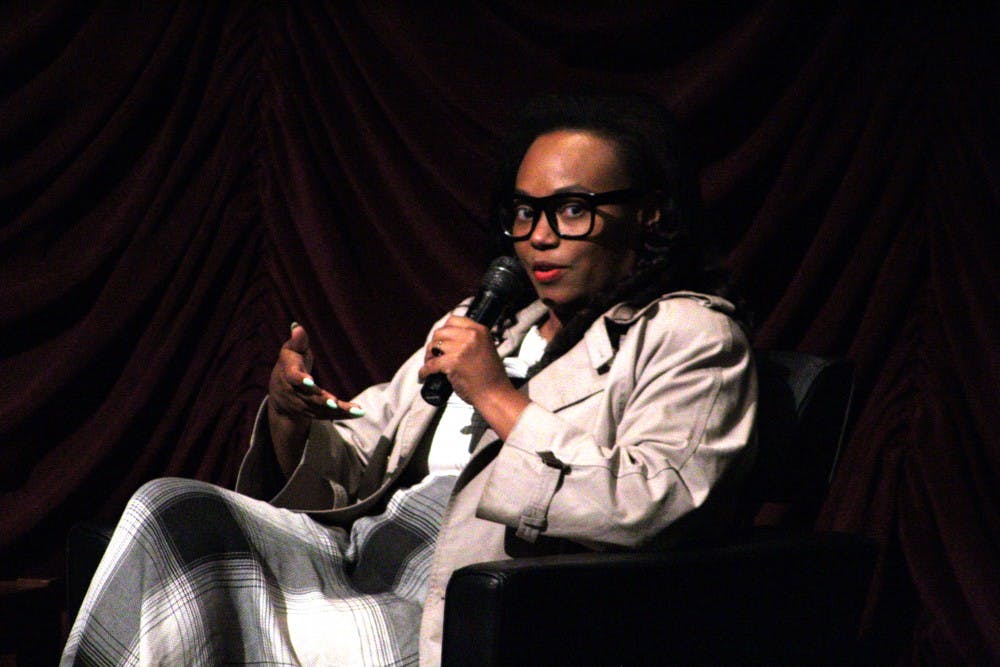With September being Woman Director Awareness Month, IU Cinema has dedicated it to film screenings, masterclasses and discussion in partnership with the IU Women’s Philanthropy Leadership Council, the Black Film Center/Archive and the Jorgensen Guest Filmmaker Series.
The celebration of women in the film industry continued Tuesday Sept. 24 with actress, director and artist Numa Perrier. Perrier sat down to discuss “the politics of pleasure” addressed in her feature-film directorial debut, “Jezebel.”
Based in 1990s Las Vegas, the film tells the story of Perrier and her older sister as they try to support themselves by offering adult entertainment online in the aftermath of their mother’s death. The girls then used their jobs as an outlet to escape the pressuring realities of their lives.
After its premiere at the SXSW 2019 Film Festival, the film was placed on The Hollywood Reporter’s Critics Choice list and was named one of the must-see films at the festival by IndieWire.
As one of the most pertinent themes in the film, Perrier said she hopes to break down the seriousness of sex and depict her own experiences throughout “Jezebel.”
“There’s been this kind of serious branding, in a way, around (sex) where that playfulness has been erased," Perrier said. "It’s still there, it is just not spoken about. Why strip away that piece of humanity?”
Perrier did not realize the small artistic moments of her youth would lead her to the position she is in right now. She grew up living on a farm in a town with a population of 200 people. Her parents were not artistic, and she said she often wonders where her artistry came from.
As a child, she wrote, acted and invented worlds in her own imagination she did not think would amount to anything. When she got her first point-and-shoot camera, she experimented with photography and looked through magazines for inspiration, not knowing she was discovering her aesthetic that she identifies with now.
Directing the movie became a “self-grooming process,” Perrier said. “Jezebel” and other works Perrier has taken part in creating, including “Queen Sugar” and her next film, “Blood Mother,” are influenced by the absence of black people in her life growing up.
Perrier depicted her culture in many of the scenes in "Jezebel." Her sister gives Perrier’s character, Tiffany, a wig for her new adult job, representing her transition from youth to adulthood. Perrier emphasized that as a black woman, her hair is a “portal” to their individuality.
“I was adopted by a white woman and a black man, and my white mother, she did her best to be the best mother that she could be to me, but she could never be a good example of what it is to be a black woman,” Perrier said. “I really think that part of the reason I’m creating films in this way, is me filling that psyche for myself and figuring that out, embracing that and inviting that (in).”




